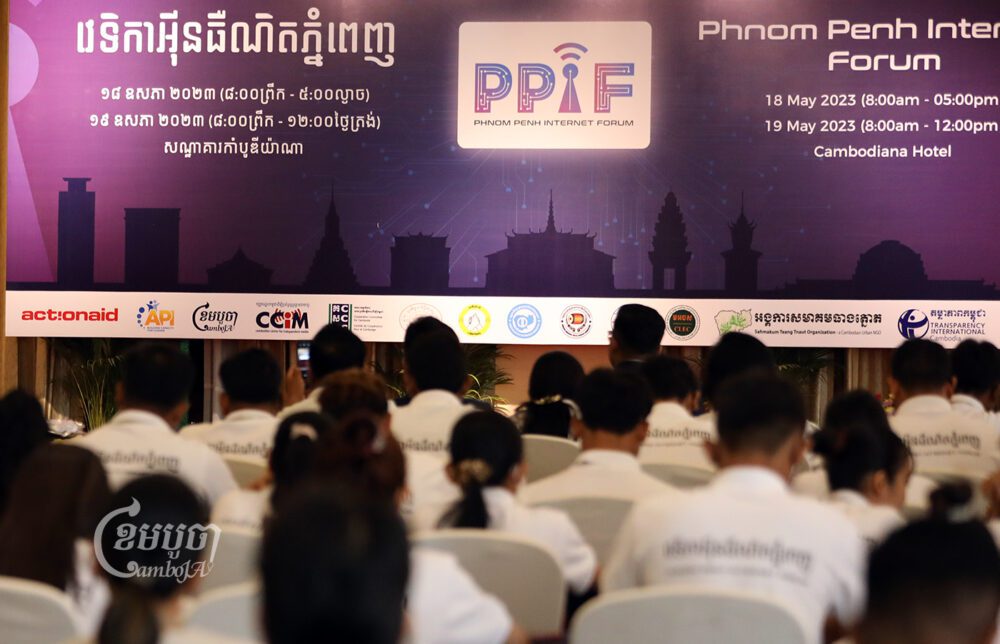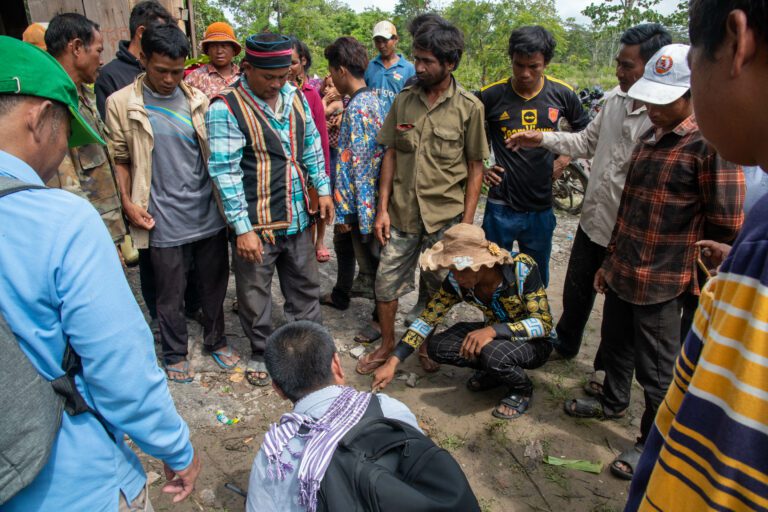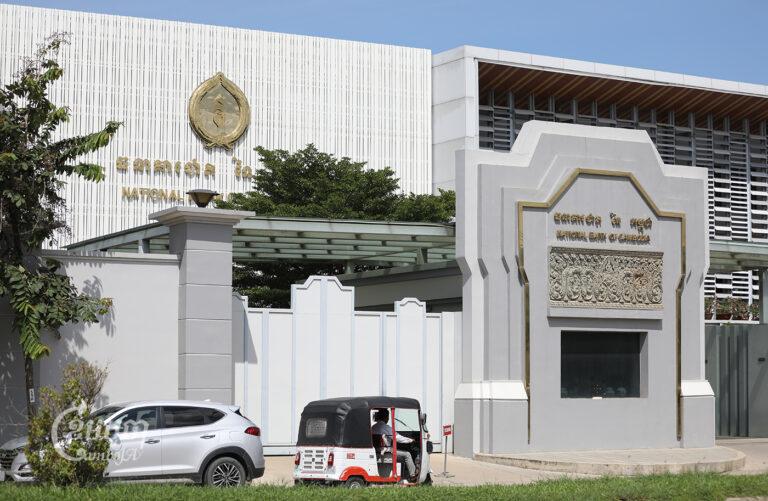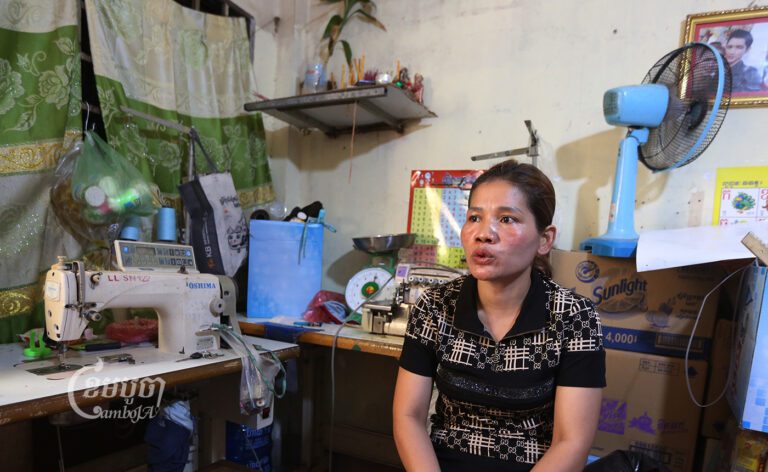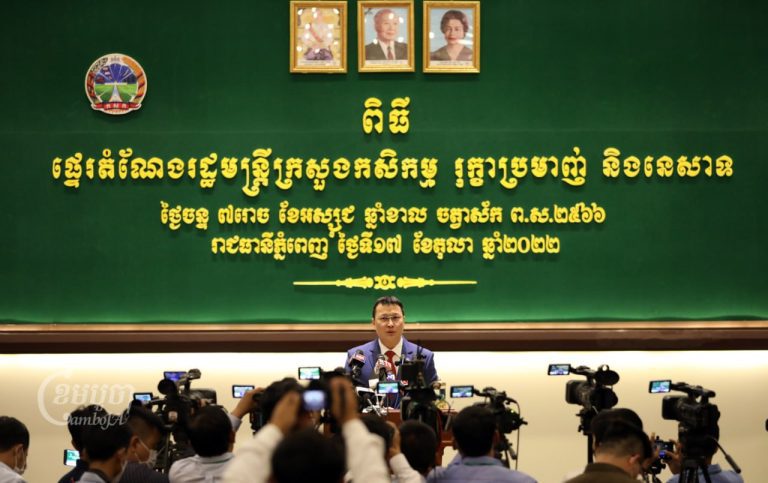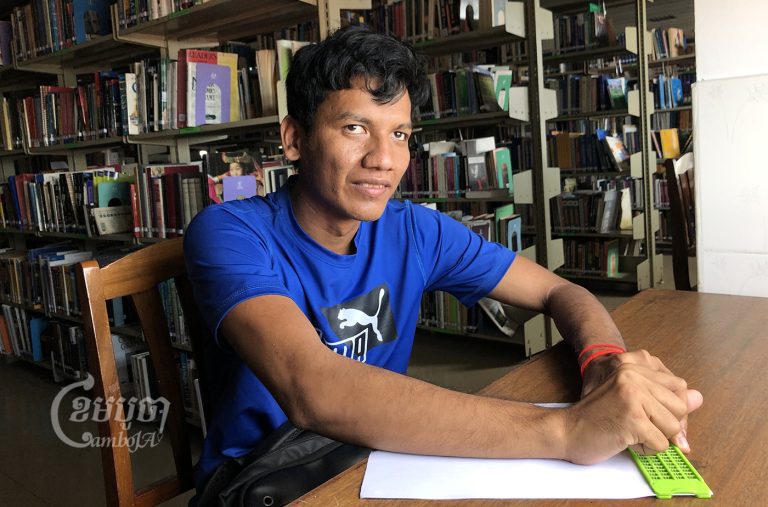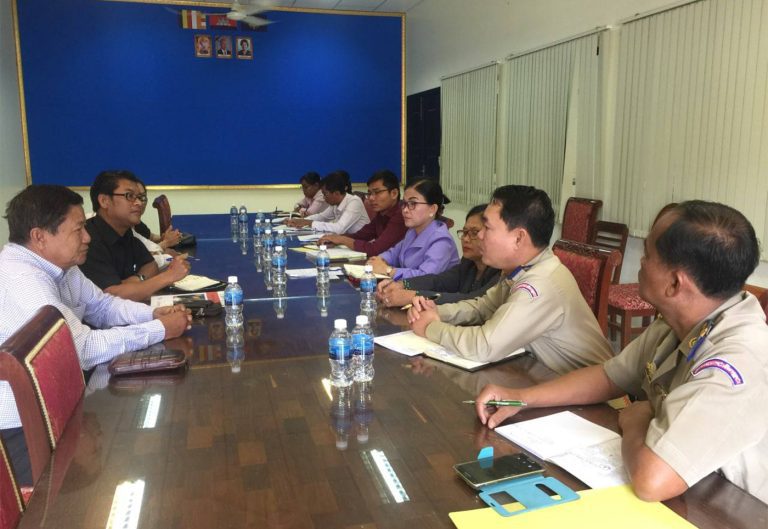The Phnom Penh Internet Forum on May 18 and 19 highlighted the challenges marginalized groups in Cambodia continue to face in accessing the internet.
Internet penetration in the country has exploded during the previous several years, from 8 million internet subscribers in 2016 to 18 million in 2022. But those living in rural areas still face barriers, especially when it comes to internet speed. Indigenous and disabled people also have difficulty accessing digital services.
Samorn Pich, 23, a Bunong indigenous person from Mondulkiri province who participated in the forum, said her rural community has some difficulties, including a lack of understanding of digital services and poor internet connectivity.
“For me, sometimes when organizations have conducted trainings or workshops, they could not reach out to me. Therefore, I lost out on the opportunities to join those programs.” She added, “When they [NGOs] opened the application or announced the training, we did not know about it.”
Pin Plil, 22, also a Bunong indigenous person from Mondulkiri, sees the internet as particularly important for his community as a business tool.
“Once the internet is available and indigenous people know how to use it, they will be able to do business online by selling some fruits without relying on traditional sales,” he said.
He said many other indigenous people and those living in rural areas have the same issues he has in accessing the internet. Indigenous communities in remote areas have unequal access to internet services compared to people in urban centers, he said.
Cambodia has five main telecommunications companies—Viettel, Smart Axiata, CamGSM, Xinwei Telecom, and Southeast Asia Telecom—that offer both fixed-line and mobile internet services. Even though internet infrastructure in the country has improved in terms of coverage and affordability, the overall internet quality is still limited, as noted in the government’s recent digital economy policy framework.
The Ministry of Posts and Telecommunications spokesman Liv Sophanarith could not be reached for comment in time for publication of this story.
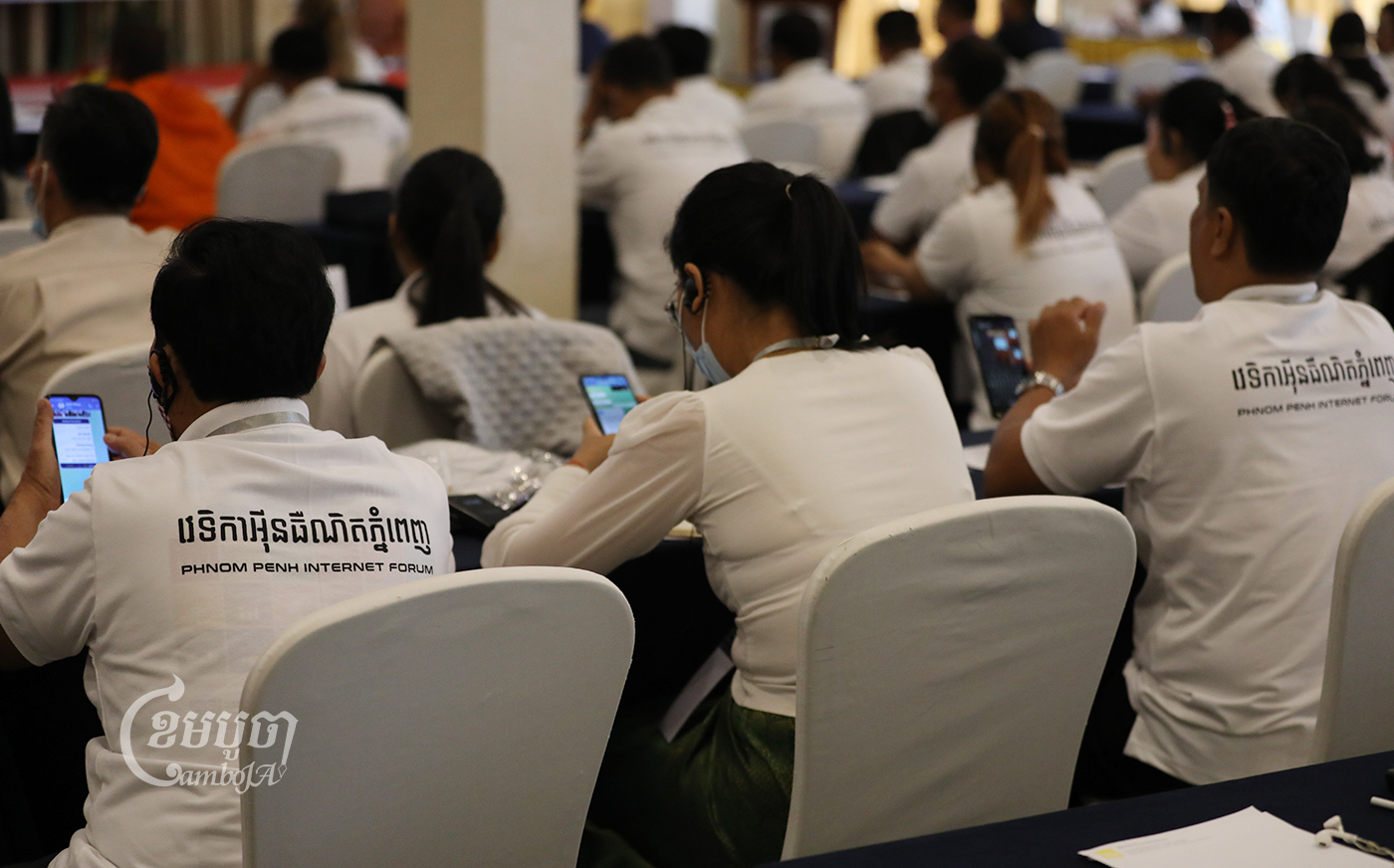
During the forum, Anju Mangal, who was the Global Digital Inclusion Partnership’s Regional Head of Asia and Pacific, said that some people are excluded from services when the government creates websites that are inaccessible.
“When they [the government] developed [websites] for people, they did not think of the design thinking process. The design thinking process is thinking about a person in a rural community or a person with a disability who may not be able to access the website,” she said.
She added that many people who live in cities use smartphones that give them online access, but a lot of other communities use basic cell phones without internet. Companies should provide the same internet speed to all users and they should not differentiate between rural and urban areas, she said.
According to Chanty Pisal, the director of the Digital and Innovation Policy Research Center at the Cambodia Academy of Digital Technology, the government is developing Cambodia’s digital infrastructure.
But Nop Vy, executive director of the Cambodian Journalists Alliance Association, said that the government still has some shortcomings, and citizens and civil society organizations do not have access to information about what the government has done. In order for the digital infrastructure in Cambodia to grow, it needs the participation of all stakeholders, he added.
“What we should be involved in is helping to monitor and participate responsibly in the policy of developing digital infrastructure in Cambodia. Indispensable stakeholder engagement from civil society and citizens is needed to ensure internet quality,” he said. “We have 4G and 5G, but who guarantees the quality? Who guarantees that 5G is really 5G, and who guarantees that the internet we get is not [bad quality]?”


